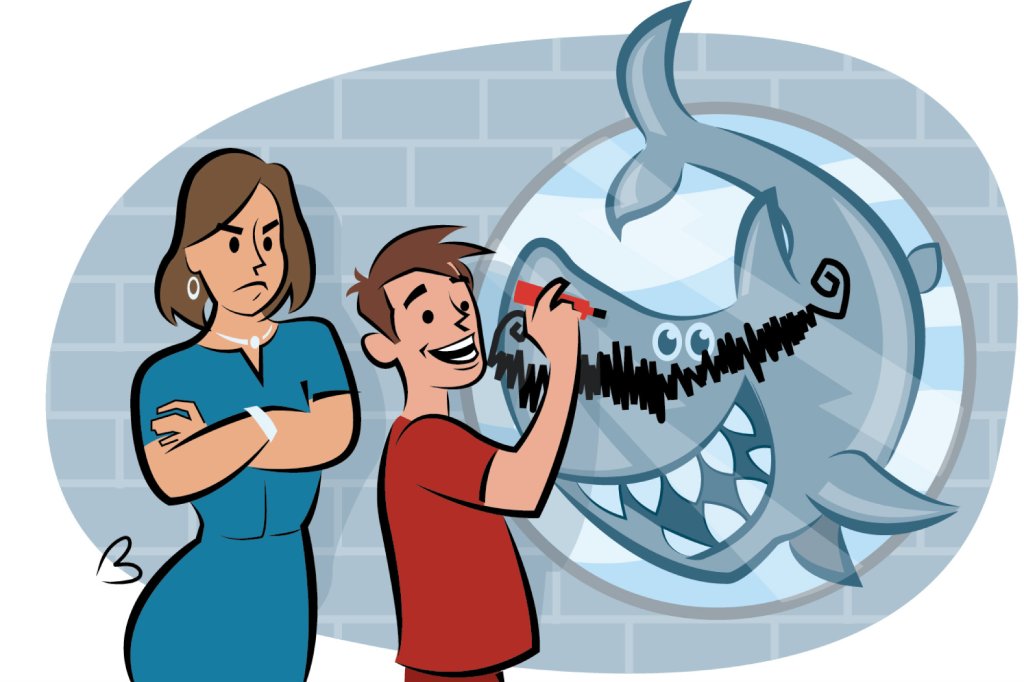Words hold incredible power, so use them wisely!
When working with teens and young adults, the words you use may differ entirely from what employees hear. Intentions may be good, but perceptions are what count.
One overcast day at the Summit Family Aquatic Center, a young lifeguard who’d worked for me for several years was bored and in a whimsical mood. He thought it would be hysterical to draw a mustache on a large image of our mascot, Shark Diddy. He thought he had used an erasable marker. Lo and behold, it wasn’t. It was a permanent marker, and his innocent gag turned into a very expensive prank. He had no idea how that prank would cost us both, financially and emotionally.
I received news of the defaced sign, as well as the culprit’s identity. Not only was I disappointed in him — I was mad! My staff knows that few things get under my skin. One of those is an employee intentionally damaging equipment. This prank in our work environment was a big deal.
I pulled myself together, then met him on the deck. I did this while he was on break, rather calling him into my office, to keep it more casual. I was going to handle it like a mom and appeal to his sense of loyalty to me and the facility. In a calm, nurturing voice I said, “You are smart and reliable, and a great guard. Why would you do something so stupid?” He never heard “smart,” “reliable” or “great lifeguard.” He only heard “stupid.” As luck would have it, his father was a labor attorney. Now I was the one in trouble — and feeling stupid!
I learned several things that I remember today:
The Lessons
1. Perception is everything. You may have great intentions as you speak with a young staffer, but what they hear and perceive may be very different. I intended to mention a stupid act, but he heard that he was stupid. “Stupid” is no longer in my vocabulary. It seemed benign to me at the time, but rang very clear in his psyche.
2. Criticism is hard to take. Young employees today have a difficult time with criticism. Their generation was raised on constant praise — everyone wins a trophy. In this type of situation, weigh your words carefully; they may have a greater impact than you think.
3. R-e-s-p-e-c-t. Staff often doesn’t know the value of facility equipment. Now I play a game with employees called “Name that Price.” It’s fun to watch the reactions as they guess the cost of things, then learn how expensive a trash can, sign or rescue tube actually is. They have a newfound respect for equipment when they know its costs!
